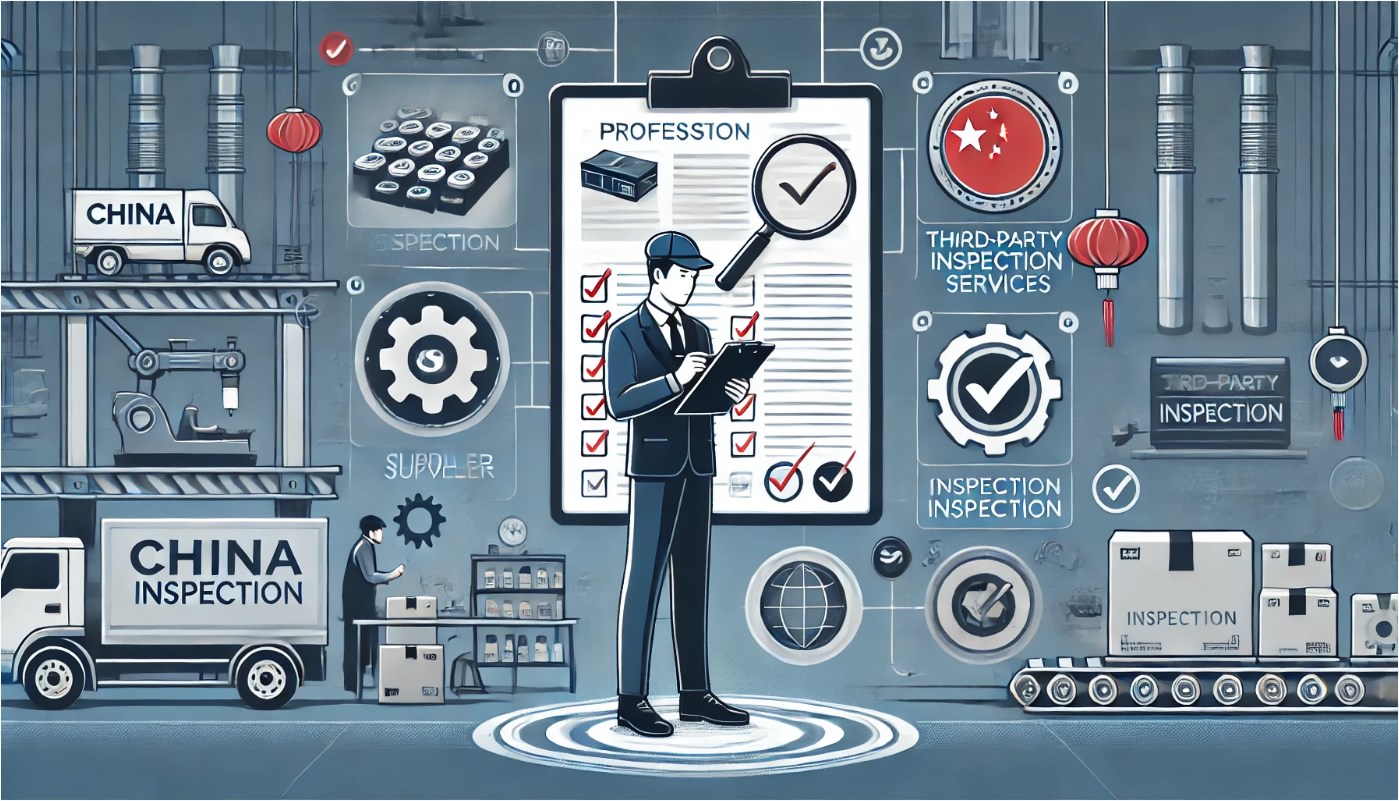Supplier verification is a crucial step in ensuring that a business selects the right suppliers for their products or services. When sourcing from overseas markets, particularly from China, verifying supplier credibility and reliability becomes even more important. Online tools for supplier verification play a vital role in helping businesses identify trustworthy suppliers, mitigate risks, and make informed decisions.
The use of online tools for supplier verification has become more common due to advancements in technology and the increasing availability of data. This guide explores the different types of online tools available, how to use them effectively, and the advantages of using these tools for supplier verification.

Types of Online Tools for Supplier Verification
Supplier Directories and Databases
Alibaba and Global Sources
Supplier directories like Alibaba and Global Sources are popular platforms for finding suppliers in China. These platforms feature thousands of suppliers across different industries, providing buyers with access to a wide variety of manufacturers. They offer tools such as supplier ratings, product catalogs, and customer reviews, which help buyers evaluate suppliers before making contact.
Alibaba, for example, provides badges such as “Gold Supplier” and “Verified Supplier” that indicate the credibility of a manufacturer. These badges are assigned after the supplier goes through a verification process conducted by Alibaba or a third-party agency.
ThomasNet and Made-in-China
Other directories like ThomasNet and Made-in-China offer similar services, providing buyers with detailed profiles of suppliers, including information on their production capabilities, certifications, and customer feedback. Buyers can filter results based on specific requirements, such as location, product type, and certifications.
These directories are useful starting points for supplier research, as they offer a wealth of information on the available options and help buyers shortlist potential suppliers for further verification.
Third-Party Verification Services
SGS and Bureau Veritas
Third-party verification services like SGS and Bureau Veritas provide supplier verification reports that offer in-depth assessments of the supplier’s operations, facilities, and capabilities. These organizations conduct on-site audits, quality assessments, and background checks to ensure that the supplier meets industry standards.
Buyers can order verification reports from these services to get a detailed evaluation of a supplier before entering into a partnership. These reports typically cover aspects such as production capacity, quality control procedures, certifications, and compliance with regulations.
Dun & Bradstreet
Dun & Bradstreet offers a unique service called D-U-N-S (Data Universal Numbering System), which provides buyers with detailed credit reports of suppliers. The D-U-N-S number is a unique identifier that helps buyers assess a supplier’s financial stability and risk level. This information is particularly valuable for assessing whether a supplier is financially capable of fulfilling large orders and long-term commitments.
Online Audit Platforms
QIMA and AsiaInspection
Online audit platforms like QIMA and AsiaInspection offer digital audit services for supplier verification. These platforms conduct on-site audits to evaluate supplier quality management systems, production processes, and compliance with industry standards.
Through online portals, buyers can schedule audits, receive real-time updates, and access detailed reports about the supplier’s capabilities and adherence to quality standards. Online audit platforms provide transparency in the verification process and make it easy for buyers to stay informed about their suppliers’ performance.
Customizable Audit Checklists
Online audit platforms often provide customizable checklists, allowing buyers to tailor audits to their specific requirements. This ensures that the audit covers all critical areas, such as raw material sourcing, production techniques, packaging, and labor conditions. By using these checklists, buyers can focus on the aspects that are most important for their products.
Government and Industry Databases
China’s National Enterprise Credit Information Publicity System (NECIPS)
The Chinese government provides a public database called the National Enterprise Credit Information Publicity System (NECIPS), which contains valuable information about Chinese companies. Buyers can use this platform to check a supplier’s registration details, legal standing, and any administrative penalties or violations.
This information is crucial for verifying that the supplier is legally registered and has a clean track record. Using government databases is an important step for verifying the legitimacy of a Chinese supplier.
Industry Associations and Certification Bodies
Industry associations and certification bodies also provide databases of certified suppliers. Buyers can verify whether a supplier holds industry-specific certifications, such as ISO, CE, or RoHS. Certification databases help buyers ensure that a supplier meets the required quality, safety, and compliance standards for their industry.
How to Effectively Use Online Tools for Supplier Verification
Researching Supplier Background
Checking Business Registration and Licensing
Before proceeding with any supplier, buyers should verify that the supplier is a legally registered entity. Using databases like NECIPS or third-party verification services can help buyers confirm the legitimacy of the supplier. This is an essential first step to ensure that you are dealing with a genuine company and not a fraudulent entity.
Verifying Certifications and Standards
Using online audit platforms and government databases, buyers can check whether the supplier holds the required certifications for their industry. Certifications like ISO, CE, and RoHS are indicators that the supplier adheres to specific quality and compliance standards.
Online directories such as Alibaba often list the certifications held by suppliers, but buyers should verify these certifications with the issuing bodies to ensure that they are valid and up to date.
Evaluating Supplier Capabilities
Reviewing Supplier Profiles on Directories
Supplier directories like Alibaba and Global Sources offer profiles that include details about the supplier’s production capabilities, facilities, and products. Reviewing these profiles is a useful starting point for assessing whether the supplier has the capability to meet your production requirements.
Pay attention to information such as production capacity, factory size, number of employees, and export history. This information can provide valuable insights into whether the supplier is capable of handling your order volume and meeting your quality expectations.
Checking Supplier Ratings and Reviews
Many supplier directories include ratings and customer reviews, which provide insights into the experiences of other buyers. Reading these reviews can help you assess the supplier’s reliability, quality standards, and customer service.
It is important to read both positive and negative reviews to get a balanced view of the supplier’s performance. Look for consistent issues, such as delays or quality problems, which may indicate potential risks.
Conducting Online Audits and Assessments
Scheduling Third-Party Audits
Using third-party verification services like SGS or Bureau Veritas, buyers can schedule on-site audits to get a detailed assessment of the supplier’s capabilities and compliance. Online platforms like QIMA also allow buyers to schedule audits and receive reports directly through their online portals.
Audits provide a more in-depth look at the supplier’s operations, including quality management systems, working conditions, and production processes. This is an essential step for ensuring that the supplier can meet your quality standards and adhere to industry regulations.
Reviewing Audit Reports
Once an audit is completed, buyers should carefully review the audit report to identify any areas of concern. The report will typically include information about the supplier’s strengths and weaknesses, any corrective actions that need to be taken, and a summary of the supplier’s overall performance.
Audit reports provide a transparent view of the supplier’s operations, enabling buyers to make informed decisions about whether to proceed with the partnership or address specific issues before moving forward.
Assessing Financial Stability
Using Credit Reporting Tools
Financial stability is a key factor in determining whether a supplier is a reliable partner. Using credit reporting tools like Dun & Bradstreet, buyers can access detailed financial reports that provide insights into the supplier’s creditworthiness and financial health.
These reports often include information such as payment history, outstanding debts, and financial stability indicators. Assessing a supplier’s financial health helps reduce the risk of disruptions due to financial instability or cash flow issues.
Evaluating Payment Terms and Risks
It is important to assess whether the supplier is capable of offering favorable payment terms, such as extended payment schedules or credit options. Using credit reports to evaluate the supplier’s financial stability can provide assurance that the supplier is financially capable of meeting their obligations.
Buyers should also assess whether the supplier requires excessive upfront payments, which may be a red flag indicating financial instability or an attempt to reduce exposure to risk.
Advantages of Using Online Tools for Supplier Verification
Convenience and Efficiency
Remote Verification
Online tools allow buyers to verify suppliers remotely without the need to travel to China for on-site assessments. This is especially valuable for small businesses with limited budgets, as it reduces the costs associated with travel and accommodation.
With online tools, buyers can access information about a supplier’s background, production capabilities, and compliance status within a matter of minutes. This level of convenience makes supplier verification more efficient and accessible.
Access to Comprehensive Data
Many online tools provide comprehensive data that can be used to evaluate suppliers from different perspectives. Supplier directories, audit platforms, government databases, and credit reporting services all offer different types of information that, when combined, provide a complete picture of the supplier’s capabilities and reliability.
Accessing multiple sources of information ensures that the buyer makes an informed decision, taking into account all aspects of the supplier’s performance.
Reducing Risk in the Supply Chain
Avoiding Fraud and Scams
Using online tools for supplier verification helps buyers avoid fraud and scams, which are common risks when sourcing from overseas suppliers. Verifying the legitimacy of a supplier through government databases, supplier directories, and third-party audits reduces the risk of dealing with fraudulent companies.
Buyers can use these tools to confirm that the supplier is a legally registered entity with a proven track record of fulfilling orders. This level of due diligence is essential for mitigating risks associated with international trade.
Ensuring Compliance with Standards
Online tools help buyers verify that suppliers meet the required quality and compliance standards for their industry. This reduces the risk of quality issues, regulatory non-compliance, and product recalls, which can be costly and damaging to the buyer’s reputation.
By ensuring that suppliers are certified and compliant with industry standards, buyers can maintain consistent product quality and avoid potential legal and regulatory challenges.






